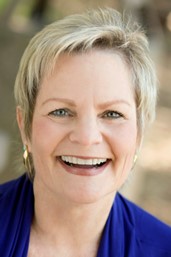By Sara Zeff Geber, Ph.D.
Author of Essential Retirement Planning for Solo Agers
Is living alone a problem in itself? Most single people of all ages tell me they like living on their own, free to come and go as they please, watch the TV show of their choice and see friends and family on their own terms. That’s all fine until something happens that prevents you from being able to drive or take care of yourself in other ways. At that point, living alone gets VERY challenging. As we age, that risk grows. There is a risk of isolation and loneliness for anyone, at any age, but the risk is most keen for a group I call “Solo Agers”- adults over 50 who do not have children – especially if they are single and live alone.
It is certainly not a given that Solo Agers are lonely. In fact, some Solo Agers, especially those that are single, have greater resilience and are more flexible than their parent counterparts. Many of them have been practicing the art of building their own unique social network for a very long time and know how to avoid the loneliness trap.
Living in a tight-knit community with friends in close proximity may enable you to feel like you never have to be alone. A community like that can serve you well in your later years when you are more likely to need periodic help or assistance. It can also be a source of companionship that is nearby. Most people don’t think ahead to the times when their lives will change in that way, but solid research shows that 70% of us will need assistance with some aspect of living during our lifetime and it usually shows up in the last decade or two of life.
Solo Agers may also benefit by being flexible and responsive to changes in their social support system. People move in and out of our lives for all kinds of reasons. When they leave, we need to replace them.
Everyday Life
We need more than one close friend to ensure we aren’t lonely in our post-50 life. A healthy number of good friends is 5-7. I’m using the term “friend” broadly. You might include siblings, nieces and nephews, and other relatives in your calculations. Some Solo Agers come from large, close-knit families; others don’t have family members they can include.
If you are unable to come up with at least five people for your current social network, you are at risk for descending into isolation and loneliness as you get older. it’s time to start recruiting! Finding new friendships to nurture is not difficult but it does take an investment of time and a true desire to develop relationships that are balanced and where each person feels equally heard and understood. A social support network is a give-and-take arrangement so we all must be prepared to give assistance and a willing ear when needed.
Emergencies
Do a casual assessment of your current network. Who would you call if you fell on the way to the bathroom at 02:00? What would you do if you had to have knee replacement or some other kind of surgery that would require help at home for a week or so? If you are married, your spouse is most likely your first line of help, but if you live alone, who are you close to that could assist you? If you are drawing a blank on this, it is time to start some discussions with friends, siblings, or other family members about the possibility of helping you should you need it.
Be a Friend
The best insurance you can have that you will be cared for when you need it is to be a caregiver yourself when the opportunity arises. Make it known that you are available and willing to help out when friends are in need. There are many ways to help friends in need. Here are a few:
- Providing transportation
- Preparing and/or delivering meals
- Caring for pets
- Being there to play a card game or discuss a book
- Being an advocate in the hospital
- Accompanying a friend to see a specialist and taking notes
- Acting as an overnight companion
- Notifying loved ones of a change in circumstances
As my mother-in-law used to say to my husband when he was young: “to have a friend, you must be a friend.” It’s good advice for us all throughout our lives.

